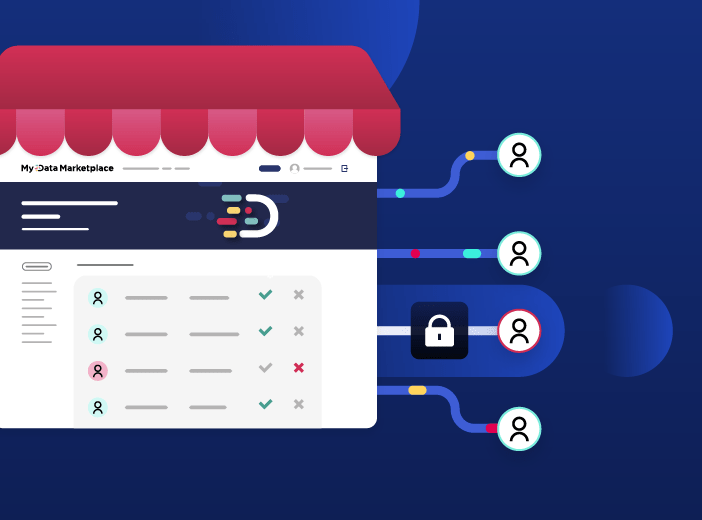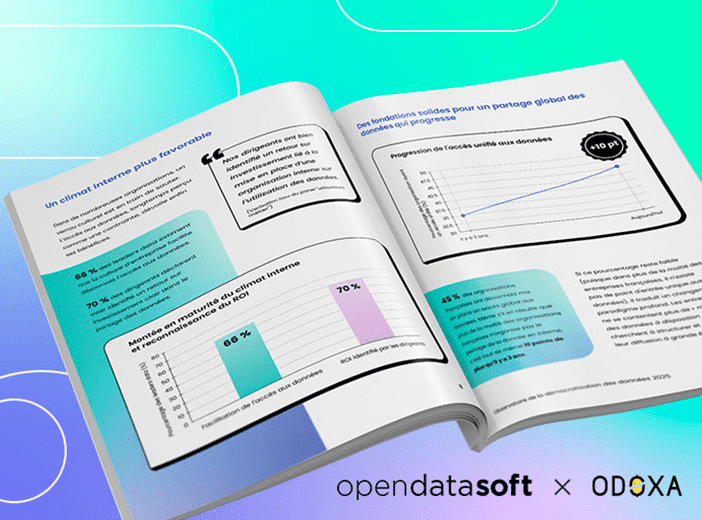How data leaders deliver value – Gartner’s 2025 Leadership Vision

The role of the data leader has never been more vital, but they face growing pressure to increase their business value and support AI initiatives. Based on a new Gartner guide, we outline the vision to follow to maximize success for their organization.
The role of the data leader, whether a Chief Data Officer (CDO), Chief Data & Analytics Officer (CDAO) or Chief Analytics Officer (CAO), has never been more important – or more difficult. The rise of AI has redoubled the importance of access to reliable, high-quality data, while the pressure to deliver value and justify investments and budgets is growing as organizations scrutinize every expenditure to ensure it delivers ROI.
Adding to this, the data management landscape is also becoming more complex at an operational level – data leaders need to collaborate with their colleagues, such as CIOs, Chief Digital Officers, Chief AI Officers (CAIO), and business heads to ensure the smooth delivery of their plans and to achieve wider organizational goals.
Overcoming these challenges requires CDOs to set out and follow a clear leadership vision, moving away from technical management to engage with the overall business to show their value and the ROI they bring. To help, Gartner has just released its Leadership Vision for 2025: Chief Data and Analytics Officer guide. This blog shares key best practice to help data leaders thrive in 2025.
The trends and challenges for data leaders
Organizations understand the business value that successfully harnessing data brings, both by sharing directly with employees, customers, and the ecosystem, and also to power AI initiatives. Delivering this value is the central task of data leaders, but as the volumes and importance of data grows, they need to understand key trends and overcome a range of obstacles to achieving success.
Three trends for data leaders in 2025
Pressure to demonstrate value
Every part of the business needs to justify its investments and the value it brings. This is particularly true for data leaders as required budgets for technology and teams increase, and the business looks to embrace AI. They need to articulate a clear vision around the value that they deliver to the organization, why investments are necessary to provide the foundation for AI success, and how they help both staff and AI to benefit from access to data. This can be difficult – according to the 2024 Gartner CDAO Agenda Survey, 64% of respondents say they struggle to communicate the value of their function, while under half (49%) have established business outcome-driven metrics that enable other stakeholders to measure the value they provide.
CDAOs are pivotal to AI success
84% of CIOs and technology leaders expect to increase their AI investments in 2025, and 74% of CEOs expect AI to be the technology that has the biggest impact on their industry over the next three years. With their role combining data, technology, and business, data leaders are best positioned to support and lead AI initiatives moving forward. They need to start by putting in place the data foundations – access to reliable, high-quality data through data products delivered to the business and AI agents, strong risk management and governance processes, and comprehensive training to spread data democratization and AI literacy. Demonstrating the importance, investing in AI-ready data initiatives is the number one priority for data leaders for the next 2-3 years according to Gartner.
New organizational and leadership complexities
Successfully turning data into value at scale and underpinning AI success is a team game. It requires input from a range of leaders, covering the technical (CIO/CTO), data (CDO), AI (CAIO), and business functions. Managing this complex web of roles and ensuring that the right stakeholders have ownership of key functions is vital for collaboration. This requires data leaders to understand and manage complex relationships and priorities, working together with their peers to drive data and AI use at scale.
Challenges to data leader success
Alongside the wider trends listed above, data leaders need to overcome three specific challenges that particularly impact their role and ability to operate effectively.
Budget and funding pressure
Investment in data is growing, yet in many organizations there is a struggle to show a clear ROI from data investments. Money spent on areas such as cataloging data or creating governance programs is necessary, but does not align with business requirements for comprehensive access to easily consumable data for the entire organization. This misalignment can even lead to data leaders being seen as a cost center, providing infrastructure and compliance, rather than a business enabler delivering true value.
A lack of solid data foundations
Successful AI projects rely on well-governed, accurate and timely data. Yet the explosion in data volumes within organizations can mean there is no guarantee that the right data foundations are in place. Data can be siloed within systems and not shared effectively, or duplicated unnecessarily. This holds back the chances of AI success, as well as hampering the industrialization of data sharing and the value that this brings. The overall lack of a comprehensive data infrastructure adds to pressure on data leaders and their budgets, preventing them from accessing additional funding to expand their programs.
Unclear – yet growing – data leader roles
The data leader role is still new to many organizations, with the areas it covers often unclear to others within the company, leading to potential confusion. Job roles are also growing – respondents to Gartner’s 2024 CDAO Agenda Survey, said they had primary responsibility for a mean of 14 scope items (up from a mean of 9 scope items in 2023). These increasing workloads are also driving a need to collaborate more widely, requiring new people skills and understanding of larger business and departmental priorities.
Recommended actions for data leaders to deliver value
As they set their vision for 2025 and beyond, Gartner recommends data leaders focus on three key actions:
Create value by aligning with strategic business priorities
Data leaders need to understand what their organization’s strategic priorities are, and ensure that their programs support these key goals. These could be around increasing revenues, boosting profitability, reducing costs or improving service levels. By aligning data initiatives with these objectives, demonstrating how they support them and measuring progress against relevant KPIs, data leaders will be able to show the value they bring. Focusing on business priorities will help gain buy-in from other senior leaders, navigating organizational complexities and making it easier to justify budgets and programs.
Build and scale data and AI foundations
Ensuring that the business has access to reliable data is at the heart of AI success, as well as enabling data consumption and value at scale across the organization. Many businesses have started this process, but often in a piecemeal or incomplete manner. This means that data is not immediately or easily available to either AI agents or employees, and is instead trapped in systems and silos where it can only be consumed by technical experts. What is required is a focus on productizing data to make it usable and valuable at scale – and then sharing the resulting data products through an intuitive, self-service data product marketplace. This approach frees data and enables it to be securely consumed by anyone within the business or beyond. Essentially data product marketplaces solve the “last mile” delivery problem within data consumption by providing a seamless, user-focused experience similar to an e-commerce website. This connects users (whether human employees or AI agents) with the information they need, demonstrating value and impact.
Elevate leadership and influence
Successful senior leaders combine a range of skills – they are empathetic to nurture and develop their teams, can share a clear vision for the future, and are confident and well-respected. CDAOs must ensure that they understand and display these key traits, moving from being seen as a technical expert to a true partner with their peers, with a focus on delivering business value through strong relationships and mutual respect. This can require training and mentoring to develop the right communication and management skills, but is vital to moving forward within the organization and achieving key objectives.
Delivering a vision for a data-driven future - what the study tells us
As Gartner stresses, 2025 will be a pivotal year for data leaders across organizations. The growing imperative to realize the benefits of AI and to scale data sharing puts them at the center of achieving business objectives. Success will require a shift from a technical to a business and people-focused mindset, combined with having the right data foundations in place to deliver data consumption at scale by both employees and AI agents. This is vital to turning data into value. It requires organizations to make it as seamless as possible to both create consumable data products focused on business requirements, and to make these products easily discoverable and usable by all. Based on our experience, this means that adopting data products and data product marketplaces is therefore an essential part of CDO leadership visions, helping maximize data value, unlock investment, and support wider business objectives.
Want to understand how implementing a data product marketplace will help scale data consumption and business value? Read our new CDO guide, Data product marketplaces demystified to learn more and access best practice advice.

It can be hard to understand exactly what a data product is, given the many ways that the term is defined and applied. To provide clarity this article provides a business-focused definition of a data product, centered on how it makes data accessible and usable by the wider organization, while creating long-term business value.


